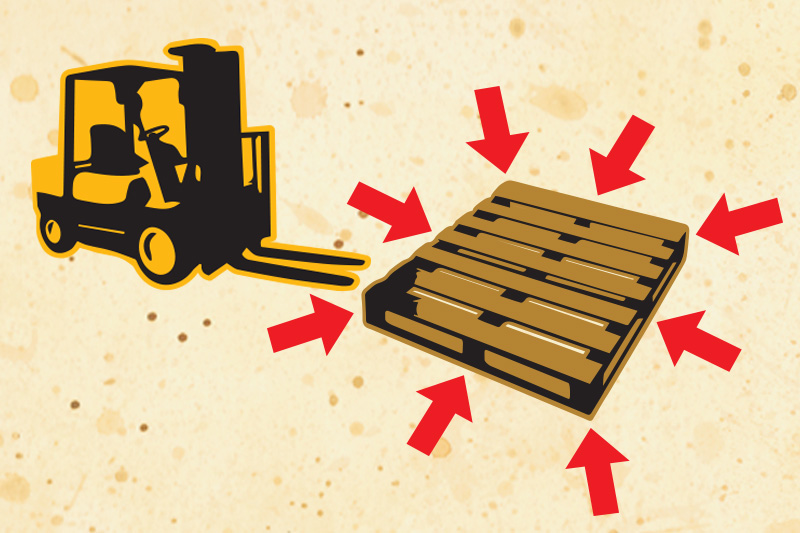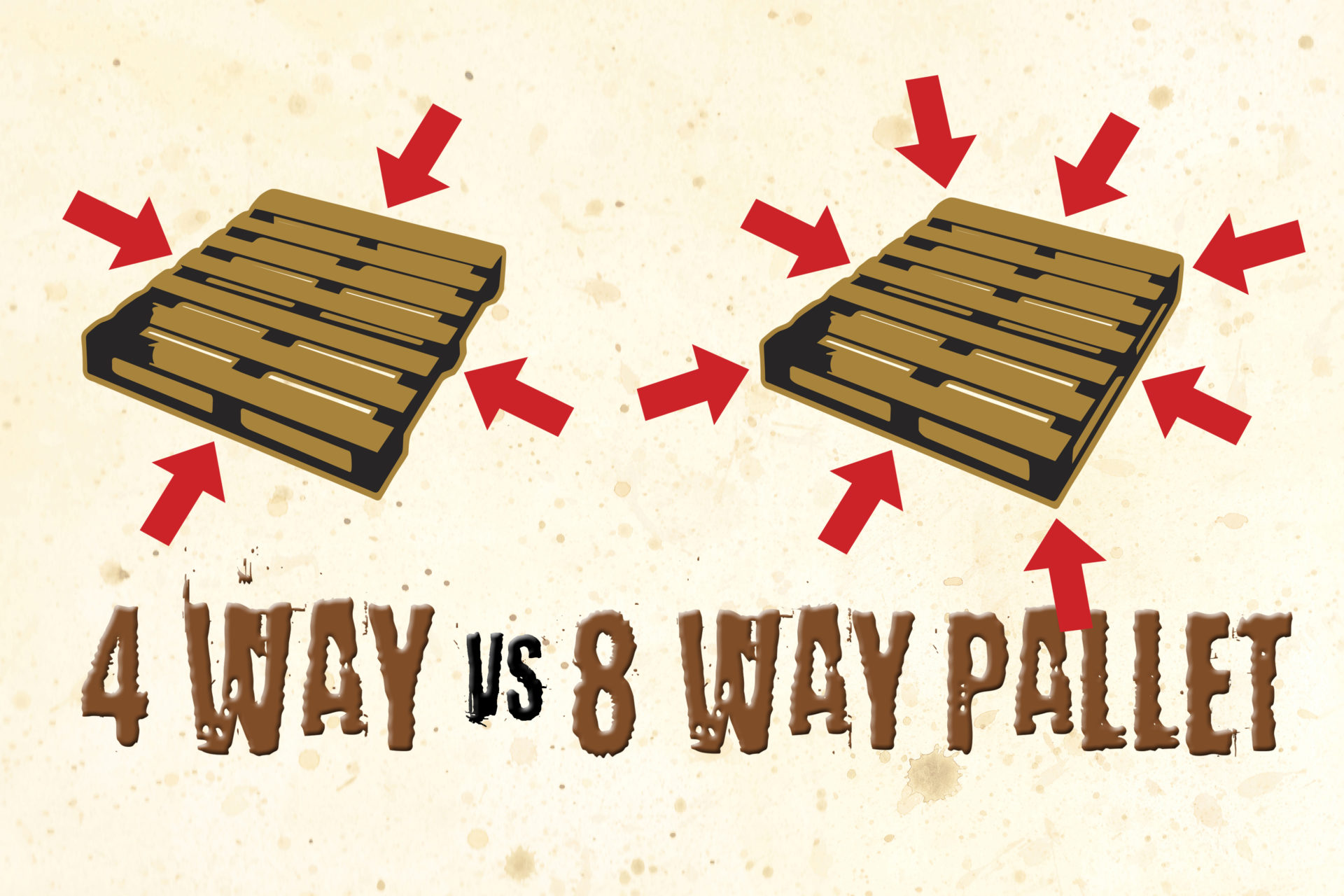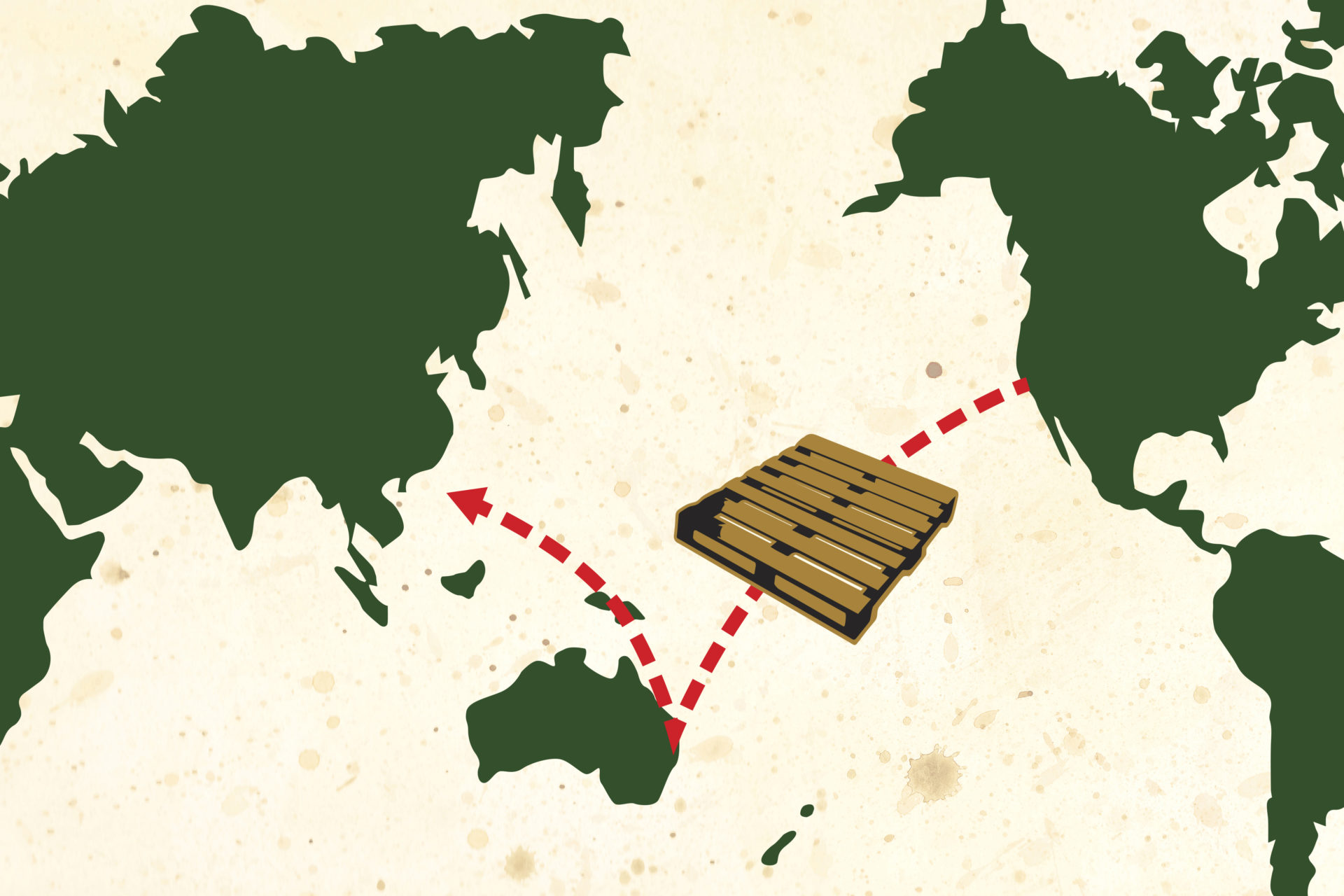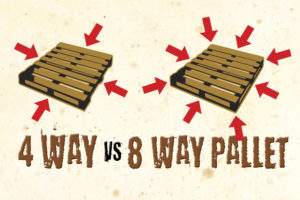The basic concept of a rigid platform for storing and transporting goods (pallet) dates back to at least ancient Egypt and Mesopotamia. Pallet sizes, styles, and construction methods have changed significantly over the years, but the basic concept has been fairly consistent. Pallets in the general form we see today have been commonplace for decades. But the practicality of the tried and true pallet took on a new level of importance during World War II.
Shipping Efficiency Becomes an Urgent Priority
The Pacific Theater in WWII presented a new type of logistical challenge. Supply chain efficiency has determined the victors of many wars, as one side inevitably has a supply chain advantage over the other. In the Pacific Theater of WWII, the Allied Forces had to overcome the challenges of a supply route that was many times greater than any encountered in previous wars. Transporting supplies from the USA to the Pacific Theater took several months. The voyage from California to Australia alone took five to six months. After refueling and restocking, the ship would then travel up to 1,800 miles before arriving in the war zone.
Minimizing Material Handling Time
On top of the long voyage, loading supplies into the ship could also be a time-consuming affair. The introduction of the 4-way block pallet helped reduce the amount of time required to load cargo in cramped spaces, allowing pallet trucks to lift pallets from all four sides. Plus, pallet truck operators could lift block pallets from each corner, so some advocates took to using the term 8-way pallet. Although pallets had been used in many ways prior to WWII, the use of pallets rapidly increased, as the USA and other countries began to focus on streamlining their supply lines. The 4-way block pallet became a major asset for the US armed forces, particularly in the Pacific Theater.
A Multi-Media Adoption Campaign

For more information about the people behind the development of the 4-way pallet, check out this article from Packaging Revolution.
The Practicality of the Pallet
Despite any resistance from material handling personnel, the 4-way pallet became an important part of the war effort because it was clearly a more practical solution. The use of pallets during WWII set the stage for the use of ubiquity of pallets within the shipping industry today. Seventy years later pallets are critical to local, national, and global commerce. Most notably, wooden pallets remain as popular as ever because they are practical to use and practical to recycle by simply running them through industrial grinders.
Once a matter of patriotism in urgent war efforts, the wooden pallet is now a mostly unnoticed but unfailing foundation of commerce. Throughout the history of the pallet, one thing explains its popularity: its practicality.




